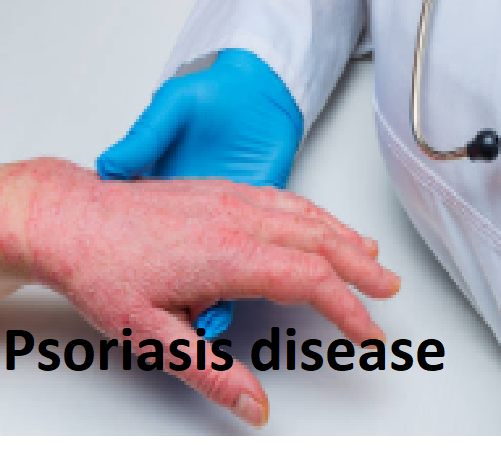Demystifying Psoriasis: Causes, Types, Symptoms, Signs, and Treatment Updates:
Psoriasis, a chronic skin condition, has long puzzled scientists and individuals alike. Its distinctive red, scaly patches can appear anywhere on the body, and its cause and cure remain elusive. In this article, we'll journey into the world of psoriasis, uncovering its causes, exploring its types, deciphering its symptoms and signs, and taking a look at the latest treatment updates.

Demystifying Psoriasis: Causes, Types, Symptoms, Signs, and Treatment Updates.
Causes:
While the precise cause of psoriasis remains a riddle, it's believed to be a result of complex interactions between genes and the environment. Genetics may play a significant role; if your family tree has a branch with psoriasis, you might be more susceptible.
* Environmental Triggers: Certain factors can set off or exacerbate psoriasis symptoms.
* Infections: Strep throat, for example, can trigger a specific type of psoriasis called guttate psoriasis.
* Stress: High-stress levels can lead to flare-ups or worsen existing symptoms.
* Medications: Some drugs, like lithium and certain blood pressure medications, are known to induce psoriasis.
Types & Faces of Psoriasis:
Psoriasis isn't a one-size-fits-all condition. It comes in various forms, each with its own characteristics:
1.Plaque Psoriasis: The most common type, characterized by raised, red patches covered with silvery scales.
2.Guttate Psoriasis: Usually triggered by an infection, this type appears as small, drop-like lesions.
3.Inverse Psoriasis: Found in skin folds (think armpits, groin), it's often smooth and red.
4.Pustular Psoriasis: This form is distinguished by pus-filled blisters surrounded by red skin.
5.Erythrodermic Psoriasis: Rare but severe, it causes fiery redness and shedding of the skin.
6.Psoriatic Arthritis: Beyond the skin, psoriasis can affect the joints, causing pain and swelling.
Symptoms and Signs:
The hallmark symptom of psoriasis is the presence of red, scaly patches. But it doesn't stop there. Depending on the type and severity, symptoms can vary:
* Itching and Burning: Psoriasis patches are often itchy and can cause a burning sensation.
* Dry, Cracked Skin: The skin may crack and bleed, leading to discomfort.
* Nail Changes: Psoriasis can affect the nails, causing pitting, thickening, or separation.
* Joint Pain: When psoriasis joins forces with arthritis (psoriatic arthritis), joints become inflamed and painful.
* Emotional Impact: Beyond physical symptoms, psoriasis can take a toll on mental health, leading to anxiety and depression.
Treatment and Updates:
Managing psoriasis involves a multi-pronged approach tailored to each individual's needs. Here are some treatment options:
1.Topical Treatments: Creams, ointments, and shampoos applied directly to the skin can alleviate mild to moderate symptoms.
2.Phototherapy: Exposure to ultraviolet (UV) light under medical supervision can slow skin cell growth and reduce inflammation.
3.Oral and Biologic Medications: In severe cases, doctors may prescribe pills or injections to target the immune system and curb the autoimmune response.
4.Promising Updates: Recent advances in psoriasis treatment include biologic medications that specifically target the immune system pathways involved in psoriasis. These innovations offer new hope for individuals with challenging cases.
In Conclusion:
Psoriasis disease, with its complex web of causes, types, symptoms, signs, and treatments, remains a topic of ongoing research and discovery. While a cure may still be on the horizon, advancements in understanding and treatment continue to improve the lives of those affected.
If you or someone you know is dealing with psoriasis, remember that you're not alone. Seeking professional medical advice is crucial for a tailored treatment plan. Stay informed, stay hopeful, and together, we can unravel the mysteries of psoriasis and offer support to those facing this challenging condition.
Disclaimer: This article is for informational purposes only and should not be considered medical advice. Consult with a healthcare professional for proper diagnosis and treatment of psoriasis or any other medical condition.
No comments:
Post a Comment